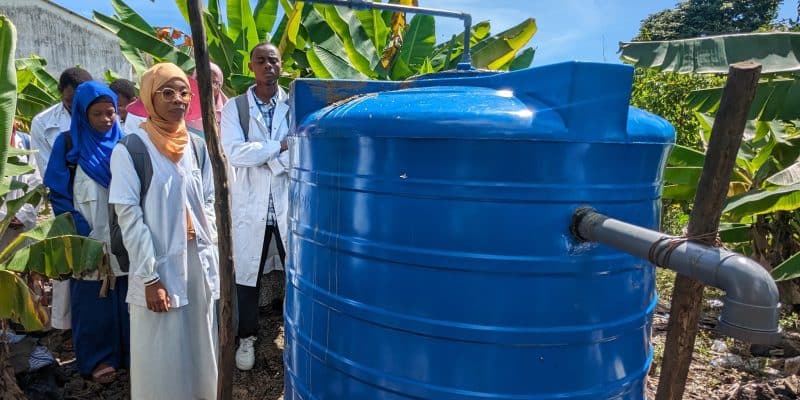As part of the TWENex project - Transformation of the waste sector towards sustainable management of the waste value chain and energy production in the south-west Indian Ocean region - the Faculty of Technical Sciences at the University of the Comoros (UDC) is training third-year physics students in the design of household biodigesters for the production of clean cooking gas.
Like many countries in Africa, Comoros is moving towards clean cooking. To this end, an educational laboratory was recently set up at the Faculty of Technical Sciences of the University of the Comoros (UDC). University officials describe it as a space for learning, experimentation, technology transfer and innovation in clean cooking technology.
In this laboratory, prototypes of household biodigesters are designed, which produce clean cooking gas from organic waste. “In this process, the prototype is developed by physics degree students at the UDC’s Faculty of Technical Sciences. The programme naturally includes technical support for the students”, says the university based in Mavingouni, a village on the island of Grande Comore in the Comoros.
Waste-to-energy to combat pollution
The first household biodigester prototype was presented on 2 April 2024. This training is part of the TWENex project – Transformation of the waste sector towards sustainable management of the waste value chain and energy production in the south-west Indian Ocean region, launched in October 2023 in the East African country. “The added value of this initiative is to seek and promote solutions to these two challenges, namely the sustainable supply of energy and the recovery of waste”, says the Indian Ocean Commission (IOC), which is behind the project. And there is no shortage of resources.
Read Also – The blue economy must be integrated into Comoros’ development strategy »
On average, 65% of the solid household waste produced in Comorian towns is biodegradable. This waste can be used to produce energy. Currently, only 49% of the energy used in the Comoros is produced locally.
In addition to encouraging research and innovation, the TWENex project also aims to improve knowledge by characterising the household waste produced in Comoros, transferring biodigestion technology for the energy recovery of organic waste to agricultural cooperatives, students, local authorities and households, and establishing institutional dialogues for the updating and development of public policies on sustainable waste management by the National Waste Management Agency (ANGD). The public company is jointly implementing this project with the University of Comoros and the Comorian company Biocom, which operates in the sustainable fisheries, agriculture and livestock sectors.
The TWENex project is also being implemented in Madagascar and Mauritius. As well as improving waste management, it is also helping to reduce deforestation, as clean cooking is an alternative to charcoal and firewood.
Inès Magoum





